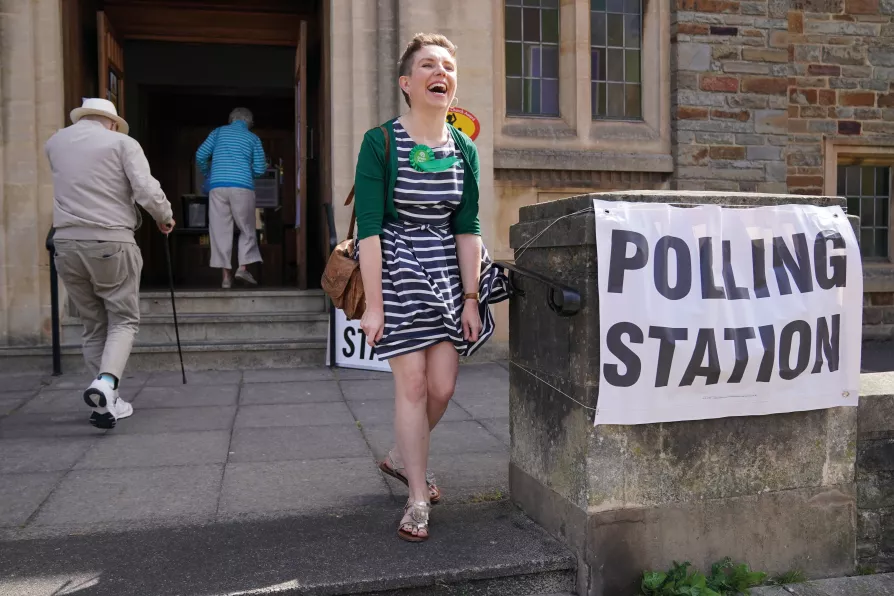VIJAY PRASHAD details how US support for Syrian President Ahmad al-Sharaa allowed him to break the resistance of the autonomous Syrian Democratic Forces (SDF)

 VICTORIOUS: Green Party
co-leader Carla Denyer after
casting her vote in Bristol,
Thursday July 4 2024
VICTORIOUS: Green Party
co-leader Carla Denyer after
casting her vote in Bristol,
Thursday July 4 2024
LABOUR’S “landslide” win in the general election was based on a set of historic lows, enabled by the continued rise of the far right and shored up by the utter weariness of the electorate with a series of failed and damaging Conservative governments.
This led to a result in terms of seats that hugely flattered the unpopularity of Labour’s leadership and its austerity platform — what Channel 4 political editor Gary Gibbons called “a loveless landslide,” in which Labour has a huge majority with the support of only one in five voters.
A YouGov poll just before the election found that a big majority of those planning to vote Labour were doing so because they wanted a change from the Tories — with only 1 per cent voting because of Keir Starmer and only 5 per cent, unsurprisingly, because of Labour’s policies.
The left will of course welcome the near demise of the Tories, who lost 244 seats and a string of Cabinet ministers, and the successes for independent candidates and Greens standing on a socialist platform. The Conservative losses were on a historic scale — their 121 seats are more than 40 fewer than they managed in 1997 and 35 lower than their previous historic collapse in the early 1900s.
But the number of seats won has been used, by Labour politicians and by the media, to disguise the fundamental unpopularity of Labour’s threadbare policy platform and the authoritarianism of its leadership.
The “landslide” was won on hundreds of thousands fewer votes than under Corbyn’s leadership of the party in the 2019 general election, a result that was painted by the Labour right and the media as the “worst since 1935,” and more than three million fewer than under Corbyn in 2019. Turnout this month — the lowest since universal suffrage began — likewise reflected the disgust and disillusionment with the “two sides of the same coin” offering by the two main parties.
Ordinary people are desperate for real change and Labour, despite using the word “change” as its slogan, was not offering it.
Because of Labour’s “more of the same” policies and the lack of public engagement — whether in hustings or otherwise — the granular impact on the Tories’ number of seats was driven by the rise of Reform UK.

Your Party can become an antidote to Reform UK – but only by rooting itself in communities up and down the country, says CLAUDIA WEBBE

The New York mayoral candidate has electrified the US public with policies of social justice and his refusal to be cowed. We can follow his example here, writes CLAUDIA WEBBE

Sixty Red-Green seats in a hung parliament could force Labour to choose between the death of centrism or accommodation with the left — but only if enough of us join the Greens by July 31 and support Zack Polanski’s leadership, writes JAMES MEADWAY

With Reform UK surging and Labour determined not to offer anything different from the status quo, a clear opportunity opens for the left, argues CLAUDIA WEBBE










